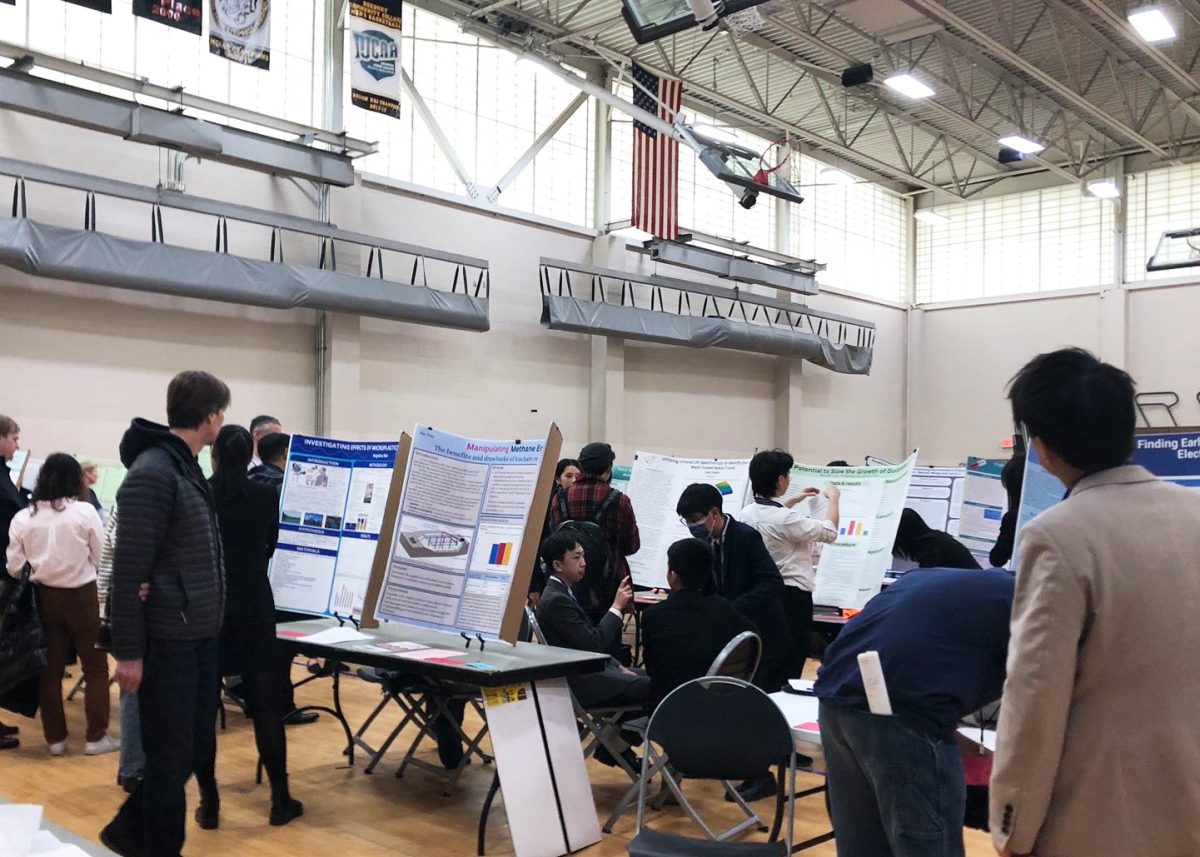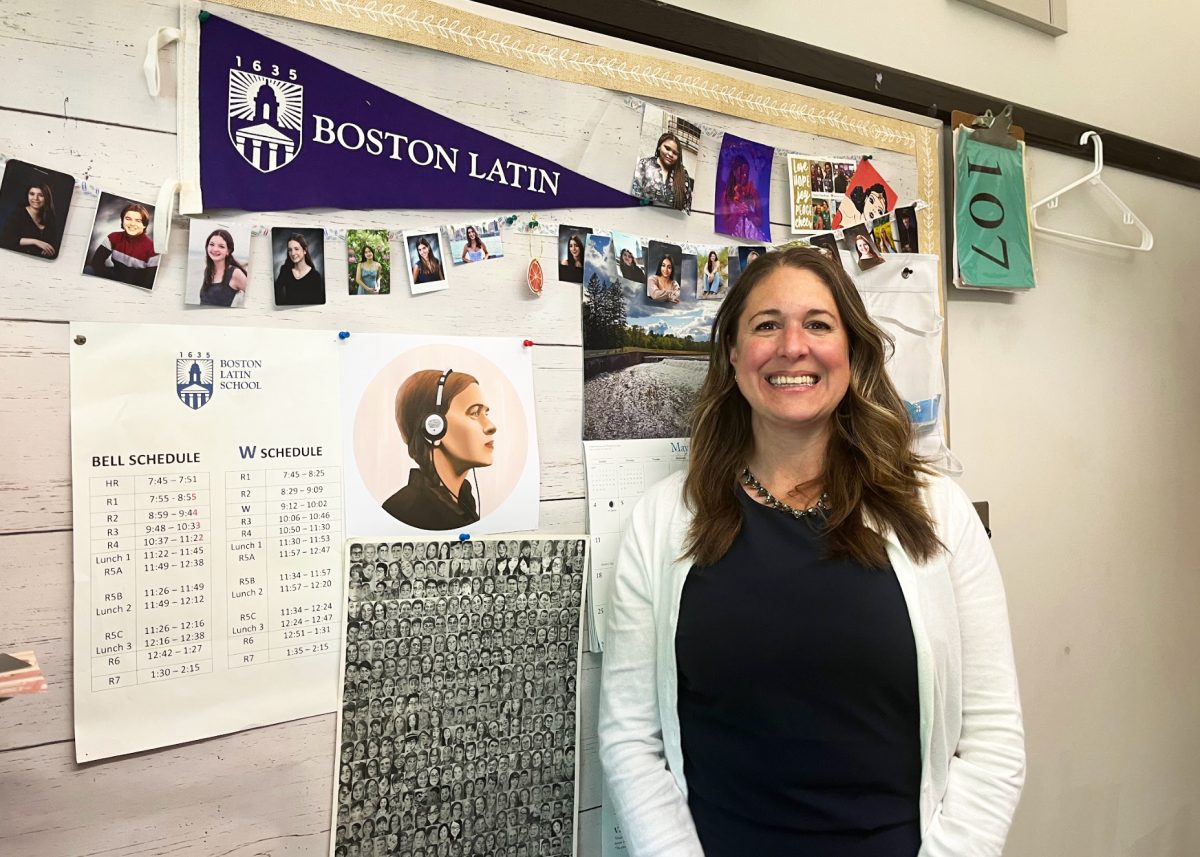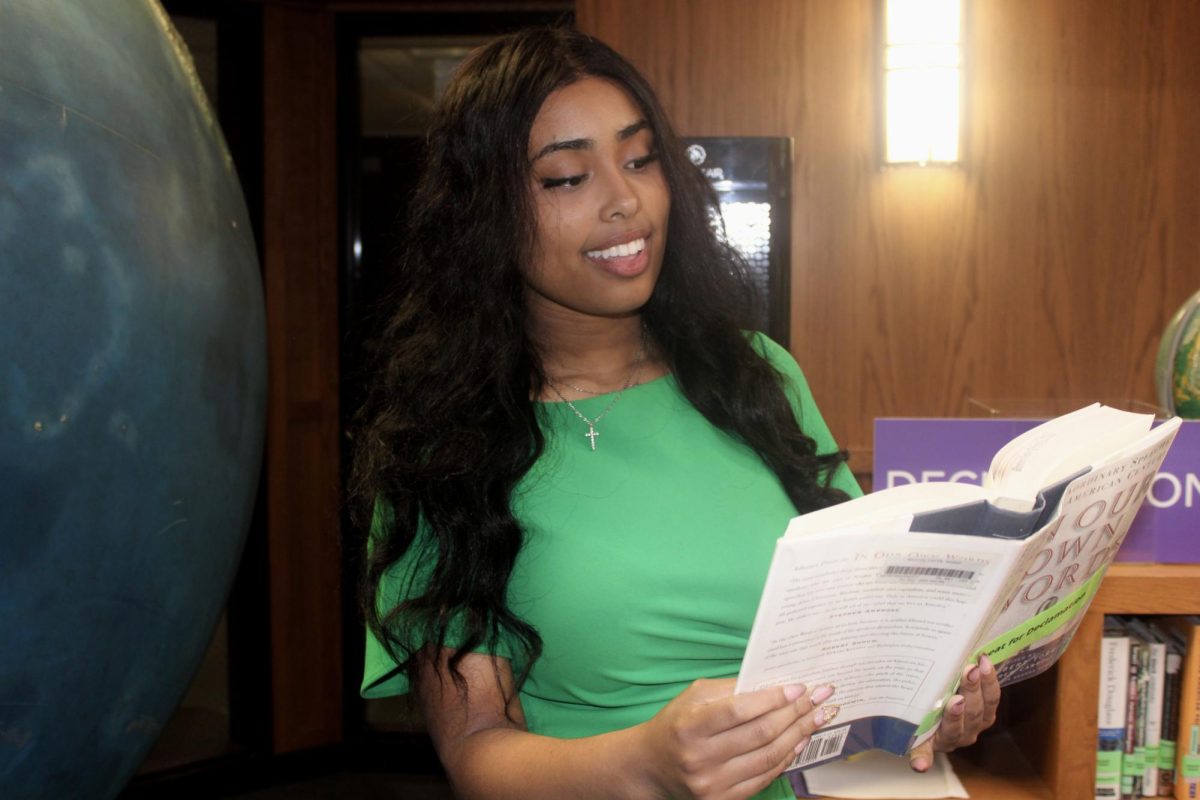On March 2, Boston Public Schools students participated in the Boston Citywide STEM Fair at Roxbury Community College, showcasing their hard work and research on their projects developed throughout the year. BLS students won numerous awards in both high school and middle school districts, including the Christa McAuliffe & Cabot Corporation Grand Prize in both respectively. BLS mentors and teachers, including Mr. Scott Balicki, Ms. Kathleen Bateman, Mrs. Aimee Messemer and Ms. Gina Castellanos, guided the students.
Tim Nguyen (I) won the high school first-place prize for the Christa McAuliffe & Cabot Corporation Grand Prize, with his project focusing on “Leveraging Deep Learning Vision Models for Efficient Unbounded Neural Radiance Renderings.” The project is a modified continuation of his previous project containing classical algorithms used in 3D perception, a way to make computers see the world like humans. He added modifications, including one leveraging the use of foundation modules to detect more robust patterns in images. These types of foundation modules are commonly found in popular artificial intelligence programs, such as ChatGPT. Using mostly Python and JAX, he was able to create a program that was more accurate and 1.2 times faster than other algorithms.
Nguyen notes that he gained support from the BLS Senior Capstone, the Harvard School of Engineering and Applied Sciences Computational Robotics Lab and the teachers mentoring for the science fair team, especially from the science staff at BLS. His project was also funded by the Google TPU Research Cloud. He will be going to the Regeneron International Science and Engineering Fair (ISEF) in May.
Nguyen also shares his thoughts regarding the science fair’s role in modern society. He states, “I think science fair is needed because it shows what people’s hidden talents are. […] Science fair does give you that space to run your experiment, sort of a maker-space […] the freedom to do whatever you want.” Students on the science fair team are encouraged to pursue their interests that may not be represented in school coursework, creating an opportunity to research a particular interest.
Nguyen hopes that the project will help machine learning advance computer vision and perception in the future, ensuring further safety of autonomous vehicles and other machinery where consumers rely on accuracy and performance.
High school second-place winner Lucy (Yuxuan) Zhang’s (III) project,“Heavy Metal Analysis of Lichen Samples at Lower Neponset River Reveals Previously Overlooked Contamination,” explores pollution near where she lives. The Lower Neponset River at Milton Hill was once a site for both industrialization and manufacturing, which caused air pollution in modern society. She emphasizes the urgency that the pollution poses to the community of Hyde Park, with the site being on the National Priorities List (NPL) from the U.S. Environmental Protection Agency.
Zhang’s project involves the collection, observation and analysis of the bioindicator lichen, as various species of it are widespread at the Lower Neponset River. Collecting over 100 samples of lichen, she analyzed them at University of Massachusetts Lowell’s lab to find that the lichen contained an elevated amount of three pollutants: lead, selenium and aluminum. She notes that all of these elements present in the air are higher than a standard background concentration, underscoring pollution as an urgent issue.
She hopes that her project will provide a better understanding of how people can use bioindicators like lichen to monitor the communities of Boston and bring awareness of the elevated pollution present in Hyde Park’s Lower Neponset River.
Zhang remarks, “Don’t be scared to reach out and learn more about science even though you are unsure right now.” She states that participating in the science fair can provide a better understanding globally and advance a community to have a brighter future, which also serves as individual motivation. She also states that prior to the project, she was unaware of the pollution issue at the Lower Neponset River, learning more about her community and ways to contribute to environmental justice with her project.
High school first-place winner Caroline Song’s (II) project “Field Deployable Real Time Natural Gas Leak Detection” aims to build a device that can detect natural gas leaks in real time and report them online. This project addresses the prominent issue of methane gas in household pipelines, which can go undetected and disperse into the air. The detection of these gas leaks would help address climate change and energy efficiency with the hope of lessening methane pollution worldwide.
Song comments, “Don’t be afraid to try random things, screw up and then try more random things.” She adds that she had constructed multiple prototypes, including a model with LED lights which she later switched to infrared lights for better results. She also received help with her project from her parents.
Song states that the device was able to successfully detect gas leaks within 1.2 meters. She hopes that with her device, she can help households to be more energy efficient and reduce methane gas emissions.
Those who ended up within the 40 percent margin in the Boston Citywide STEM fair are able to qualify for the Massachusetts State Engineering Fair (MSEF) Senior State Fair at Gillette Stadium on April 5, as well as an additional opportunity of qualifying for the MSEF Junior Fair at Worcester Technical High School on May 11. Each of these fairs will give the students more time to prepare for another chance at getting into ISEF.







